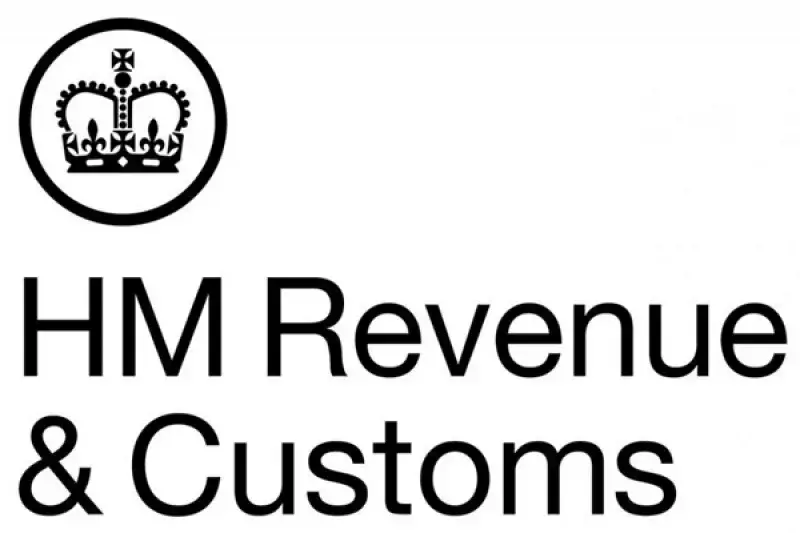If you have questions about how your UK pension will be impacted if you recently left the UK as a foreign national or expat, then this article is for you.
For newcomers, it can be intimidating and seem complicated, and depending on the type of pension you have and where you move to, your options will also change.
In this article, we’ll look at a few of the factors that might cause expats and foreign nationals to want to transfer their pensions abroad as well as the options that are available.
In addition, we’ll provide links to forms and other useful tools that may come in handy in the future.
If you are looking to invest as an expat or high-net-worth individual, which is what I specialize in, you can email me (advice@adamfayed.com) or use WhatsApp (+44-7393-450-837).
The Reasons Behind Transferring of UK Pension Abroad
For a variety of reasons, including proper management of their pensions, consolidation, or administrative simplification, expats and foreigners may transfer their UK pension abroad.
Additionally, transfers from DB schemes, DC schemes, and individual pension arrangements are all subject to different procedures.
Before transferring, it’s crucial for anyone moving their UK pension abroad to comprehend and be aware of any significant guarantees.
Depending on where they relocate, all foreigners and expats then have the following options:
- UK pension (SIPP)
- Overseas pension (QROPS)
- There are programs that have informed HMRC that they are eligible to be a recognized overseas pension programs (ROPS).
- Overseas employer’s scheme
Please be aware that since the UK has now left the EU, the UK HMRC may make additional changes to these options in the future.

The Primary UK Pension Options Available To Expats And Foreigners
Your pension will still be available if you leave it in the UK when you relocate abroad. Before leaving the country, we always advise you to review your situation because once you are outside the UK, some options will no longer be available to you.
1. Personal Pensions
Individuals can purchase personal pensions on their own or through a group personal pension plan set up by their employer, which they can take with them and continue to fund even after they leave that job.
However, they may also offer guaranteed benefits, such as guaranteed fund values at retirement age or guaranteed annuity rates.
Old-style personal pensions may have limited investment options and limited functionality. Newer plans frequently cost less and offer more functional and investment options.
Your personal pension will continue to grow after you leave the UK based on the fees and performance of the investments you have made.
You can keep making contributions after you leave the UK for up to five tax years (up to £3,600 gross annually; your net cost is $2,880 before 20% tax relief is added).
Only a personal pension is eligible to receive these contributions. They cannot be applied to the company plan of a former employer.
We’ll break down the distinction between defined contribution pensions and defined benefit pensions to make it clearer.
2. Defined Contribution Pensions
If an expat has a defined contribution pension, they can choose to leave it with their UK pension provider; until they begin receiving benefits, their place of residence will have no impact on the pension.
A defined contribution scheme is typically a company-sponsored plan, making it ineligible to accept new contributions.
These plans typically have limited fund selection and no income drawdown options. Investment and benefit options will be under the trustees’ appointment by the company.
However, UK expats can transfer their pension to a SIPP or overseas to a QROPS if they want to have more control over the investment or access income drawdown benefits.
They must guarantee the QROPS. In order to prevent your pension provider from rejecting the transfer or worse, risking severe penalties, make sure that your pension provider is on the HMRC’s approved list of qualifying recognized overseas pension schemes (QROPS).
3. Defined Benefit Pensions
Defined benefit pensions are comparable to defined contribution pensions in that they are typically company-sponsored plans, but you can leave them with your pension provider if you move abroad and your current address won’t matter until you start receiving benefits. Once you have left the UK, you are no longer able to contribute to these programs.
These kinds of plans typically have a high value and should only be transferred in specific situations.
These situations might include members who are not married, members with a short life expectancy, members who might want to leave money to beneficiaries other than a spouse, members who might have sizable other retirement savings, members who might want to be able to manage their income tax liability, or members who might want to pass capital to beneficiaries other than a spouse.
These transfers are subject to more stringent regulatory requirements, and if the cash equivalent transfer value exceeds £30,000, you must make sure the firm providing the transfer analysis is a UK-regulated company.
In exchange for the benefits and guaranteed income provided by the scheme, you will receive a cash equivalent transfer value when transferring.
What happens to my UK Pension if I move abroad?
You are eligible to receive your UK State Pension even if you are living abroad as long as you have paid enough National Insurance. However, they will only receive annual increases if they reside in:
- The United Kingdom for 6+ months each year
- Countries in the European Economic Area (EEA)
- Countries that have a social security agreement with the UK
- Switzerland
Expats who don’t meet the aforementioned criteria won’t begin receiving increases to their UK State Pension until they return to the country. The amount of the pension paid will not change until that time.
The main distinction is that, depending on where you live, you might not receive the additional State Pension money if it increases.
Your State Pension might remain the same as it was when you left the UK, unlike those who remain there and receive the most recent amount. Even if the difference isn’t significant, it should be taken into account.

Can I still claim my UK pension as an expat living abroad?
Yes, you can receive your pension from anywhere, but there could be tax or logistical implications.
A pension located in the UK will always be subject to UK income tax (PAYE), unless you live in and apply from a nation that has a Double Taxation Agreement (DTA) with the UK, in which case your income can be paid gross and taxing rights only transfer to your home nation.
You might pay taxes twice on the same income if you don’t apply for a DTA or if one isn’t available where you live. If there is no DTA or if applying for a DTA would be cumbersome, you might be able to transfer to a European jurisdiction.
Unfortunately, a lot of UK pension providers won’t let you withdraw benefits into an overseas bank account, and if they do, there might be significant fees associated with it. UK pensions created with expats in mind will almost certainly pay benefits to an international bank (fees may apply).
You will be able to deposit your pension into that, though, if you must use a bank account in the UK. Before using your benefits, make sure you are aware of the transfer fees and exchange rates available.
There are many banking apps available today that offer foreign exchange and money transfers at significantly lower costs than high street banks.
Since not all accounts are available once you have left the UK, you should think about opening one of these accounts before you depart.
Prior to submitting a claim for UK pensions from abroad, it is always advised to seek out transparent and dependable advice.
What happens to National Insurance Contributions if I move abroad?
While working abroad, expats are still able to make their regular National Insurance Contributions, but only in relation to lengthening the number of years that count toward their eligibility for the UK state pension.
Additionally, you can review prior tax years and make back payments in accordance with the National Insurance Contribution rates that were in effect during those particular tax years.
It’s important to remember that regardless of where they live, expats can continue to make voluntary Class 3 National Insurance Contributions while they are away from home. You must submit the NI38 form to HMRC in order to do this, which is available here.
You can also submit a BR19 form or request a State Pension forecast online.
Managing Your UK Pension Abroad
You are still capable of managing your UK pension efficiently and reducing costs even if you reside abroad.
You might be able to pay monthly or annually into your UK pension if you do so through a UK bank account.
There are some offshore pension providers that will accept contributions from foreign banks, but keep in mind that any money you earn abroad and in a currency other than the British pound will be subject to changing exchange rates and may be charged transfer fees depending on the bank.
Our research indicates that UK pension providers typically won’t accept contributions from foreign bank accounts, so we advise speaking with your UK pension provider directly about this.
Expats should think about investing in an all-in-one investment platform with trustees that can accept foreign banking arrangements and that can provide services like investment advice, pension transfers, pension administration, and asset management in addition to other perks in order to manage pensions abroad effectively.
It’s likely that using different businesses for each component will raise costs overall.
Managing Your UK Pension in Europe
You could transfer to Malta or Gibraltar if a transfer to a QROPS in Europe was necessary. If you reside in a nation without a DTA with the UK or Malta, Gibraltar is typically a better option.
You won’t incur an Overseas Transfer Charge (OTC) if you transfer to Gibraltar or Malta as long as you are also a resident of the EEA.
However, if you live or move outside the United Kingdom, the EEA, or Gibraltar within five years of the initial transfer, an OTC may be incurred. 25% of your transfer fund is equivalent to an OTC.
If you transfer to a country where you do not currently reside, the Overseas Transfer Charge (OTC) would be assessed, in which case another UK pension (a SIPP) is probably the best choice for the majority of expatriates and foreign nationals.
The good news is that if you relocate back to the UK, EEA, or Gibraltar within five years of transferring your pension, you might be eligible for a refund of the OTC.
You must use an APSS241 form to communicate with both the UK and your international provider in order to accomplish this; more information can be found on the HMRC website.
Check out our reviews on Ardan International.
Pained by financial indecision?

Adam is an internationally recognised author on financial matters with over 830million answer views on Quora, a widely sold book on Amazon, and a contributor on Forbes.




Which countries have a DTA with the UK and are also preferable for transferring one’s pension to another country?